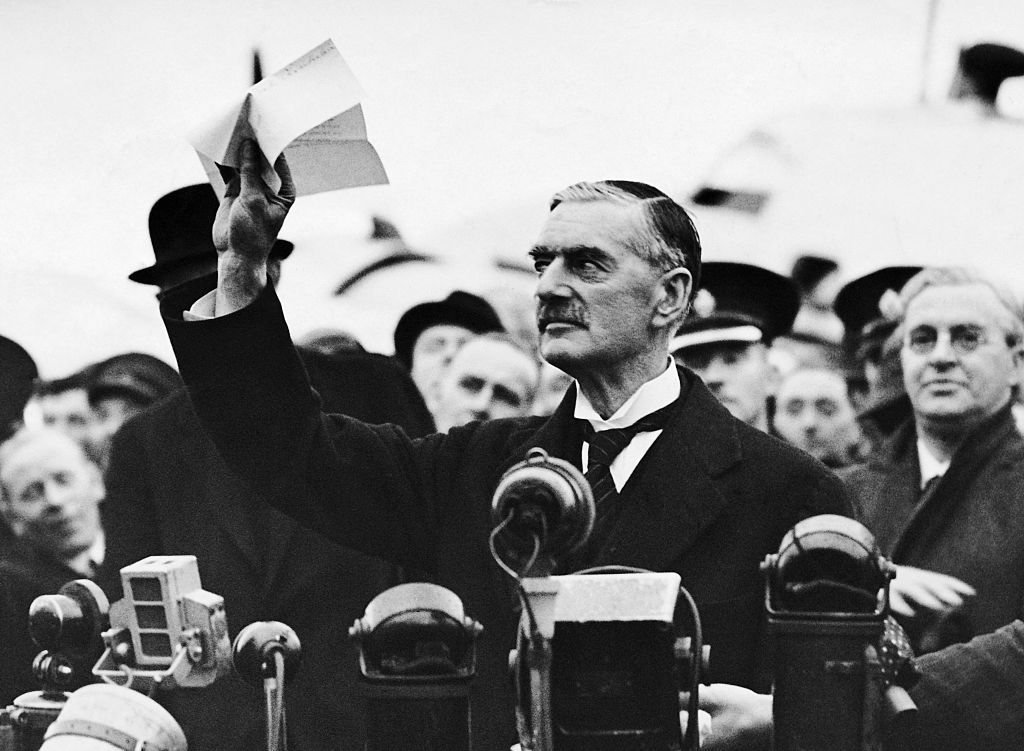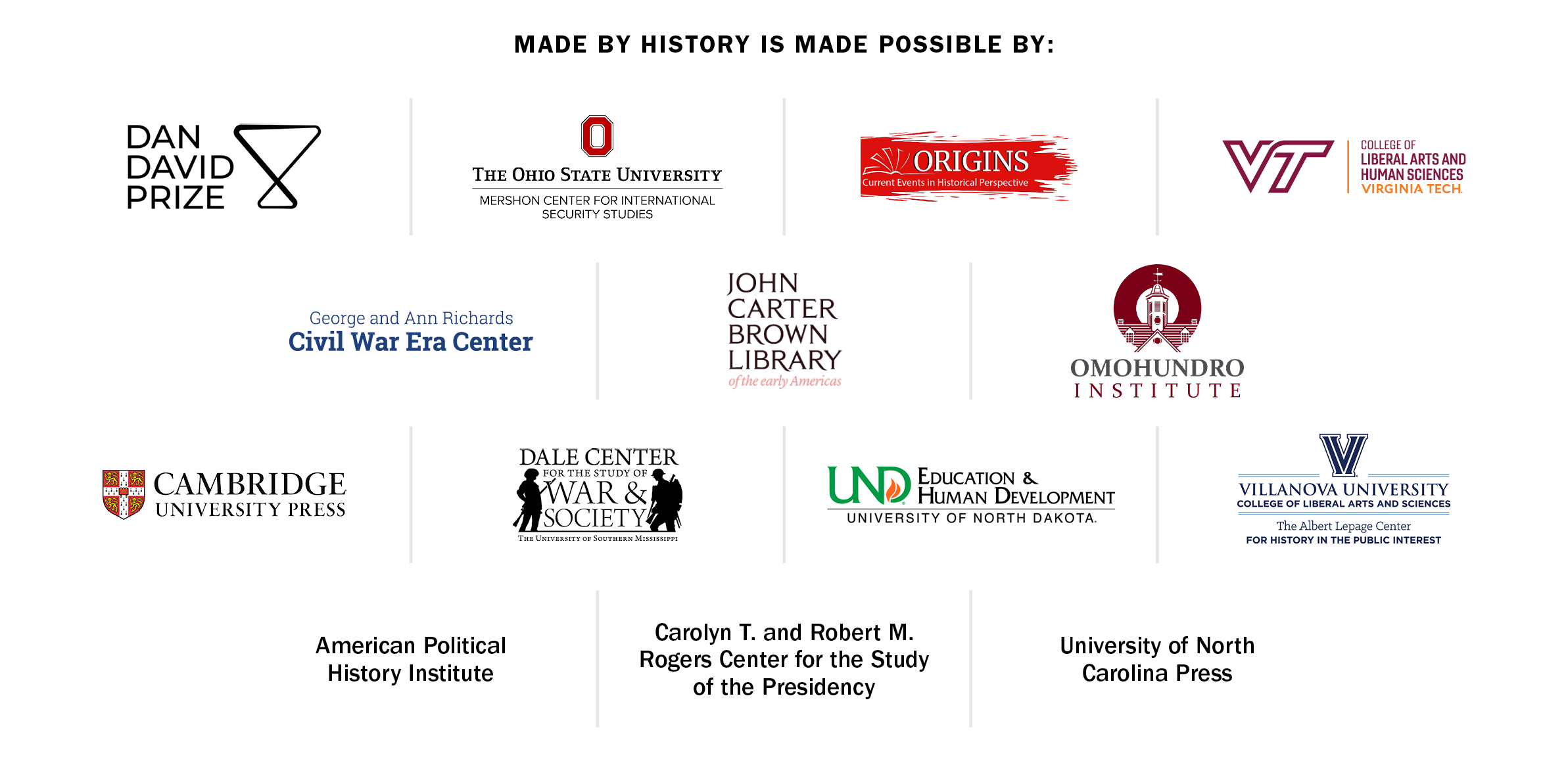
In mid-February, Ukrainian forces were forced to withdraw from Avdiivka, signaling the first major Russian victory since the capture of Bakhmut in May 2023. Speaker of the House Mike Johnson has finally agreed to put a bill on the floor that would provide aid to Ukraine. But his fellow Republican Marjorie Taylor Greene has threatened to introduce a motion to vacate—to oust Johnson from the speakership—if he does so.
An increasingly pro-Russian Republican party, egged on by former President Donald Trump and Tucker Carlson, shows stronger support for the autocratic Vladimir Putin than for the embattled Zelensky, fighting to save his country from Russia’s rapacious aggression. Republican Senator J.D. Vance has strenuously opposed further aid to Ukraine, arguing that Ukraine should negotiate with Putin to end the war—and that it should be willing to give up some of its territory to do so. Trump himself has said that he would consider letting Russia take Ukrainian territory as part of a deal to end the war there. Zelensky, understandably, has long rejected the idea of ceding territory for peace with Russia. And it seems unlikely that Putin, who denies Ukraine’s right to exist as a nation separate from Russia, would be satisfied for long with a negotiated deal that leaves much of Ukraine intact and independent.
Indeed, history suggests that autocrats are seldom satisfied with concessions designed to assuage them. Politicians have long touted the disgraceful appeasement of Hitler at Munich in 1938 as evidence that one must not negotiate with dictators, whose demands are insatiable. Zelensky must look back at that 1938 betrayal of Czechoslovakia president Edvard Beneš at the hands of his French and British allies with considerable trepidation.
Read More: Ukraine’s Future Hangs by a (European) Thread
In the wake of World War I, the Treaty of Versailles had ceded territory called the Sudetenland, a region where German speakers predominated, to the newly formed country of Czechoslovakia. German citizens resented the cession of this land with its three million Germans, and over the course of the 1930s, Hitler became increasingly aggressive in demanding its return to his Third Reich.
By 1938, Hitler had already expanded the German Empire to include Austria. This left Czechoslovakia surrounded by German territory on three sides and vulnerable to German encroachment.
Like Putin’s alleged concerns for ethnic Russians living in Ukraine, Hitler turned his attention to advocating for the rights and protection of Sudeten Germans under Czech control, instructing the leader of Nazi-allied Sudeten German Party Konrad Henlein to make wildly sweeping demands for German autonomy there. Contemporary sources suggest that while Sudeten Germans had long supported policies that would improve their position and guarantee their rights within the Czechoslovak republic, significant numbers opposed annexation to Nazi Germany. But Hitler’s demands were strategic; the Czech government’s refusal could then be used to justify a German invasion of Czech territory.
As Hitler continued to harangue the Czechs over the summer of 1938, British and French officials pressured Czech prime minister Beneš to make concessions to Hitler. Beneš, like Zelensky, said that his army would fight the Germans rather than hand over Czech territory as British negotiators were suggesting.
The French, formal allies of the Czechs, suggested to British prime minister Neville Chamberlain that an explicit commitment in support of Czechoslovakia would be the best way to deter Hitler. But Chamberlain refused. His response to French prime minister Édouard Daladier was that he did not believe that Hitler wanted to destroy Czechoslovakia—but that if he did, he did not see how it could be prevented. The British government had no intention of coming to Czechoslovakia’s defense, and the French were unwilling to take on Germany without British support. Both Chamberlain and Daladier advised Beneš to accept Germany’s demands for separate German status within the Czech state.
Read More: The Crisis in Ukraine Has Disturbing Echoes of the 1930s
Despite the Czech government’s capitulation that September to demands for German autonomy and self-governance in Sudetenland, Hitler refused to be appeased. He began making plans to invade the entire country, making it clear that his real goal was incorporating Sudetenland into Germany. Firmly committed to peace at all costs, Chamberlain and Daladier negotiated separately with Hitler and agreed to support the German annexation of Sudetenland. They met with Hitler and his Italian ally Benito Mussolini in Munich on Sept. 28 to finalize the deal and signed an accord agreeing that Czechoslovakia would cede Sudetenland to Germany immediately.
Neither Beneš nor any representatives of the Czech government were invited to the conference, nor were they consulted. They had no choice but to acquiesce, since neither the French nor the British would provide military assistance. The Czechs lost the key to their security as Germany completed its occupation of Sudetenland in early October, absorbing about a third of Czechoslovakia's population and its most important industrial sites. In return, Hitler had promised to spare the rest of Czechoslovakia, claiming piously that he had no more territorial demands to make in Europe.
Chamberlain returned to England with the Munich agreement in hand and told a cheering crowd that he had achieved “peace with honor” and “peace for our time”—a statement that has not aged well.
Even in the short run, appeasement at Munich—a term with terrible connotations today—was a failure. It convinced Hitler that western nations would not stand up to his designs. On March 15, 1939, German tanks rolled into Prague, putting an end to Czechoslovak independence, and confirming that Hitler’s ambitions went far beyond restoring Germans to the Third Reich. The people of Czechoslovakia, citizens of a democratic republic for over 20 years, now faced Nazi occupation and rule, with devastating consequences to come. Hitler’s next move was clear to anyone who could read a map: Poland was now in the crosshairs. German citizens in the Polish corridor, another legacy of World War I, would provide the excuse to attack Poland on Sept. 1, 1939, launching World War II in Europe.
Chamberlain had believed that German grievances were justified, and that Hitler’s designs on Czech territory were limited to those rightfully part of the German Empire—much as some members of the Republican party seem to believe that Putin’s demands on Ukrainian territory are limited and reasonable. And while J.D. Vance self-righteously claims that “maybe, just to throw a crazy idea out there, not every conflict is the Second World War,” the parallels are too obvious to ignore.

Unlike Beneš, Zelensky has been able to hold out against the Russians for two years with strong support from the United States and European allies, who understood that failing this, Putin’s aggression against Ukraine would not be his last. Poland is already in his sights; the Polish government reacted with alarm to Putin’s statement that “the western territories of present-day Poland are a gift from Stalin to the Poles,” and his vague threats that Poland may find its independence at risk if it pursues unfriendly policies.
Appeasement of Hitler didn’t work, and appeasement of Putin threatens the safety not only of Europe but of the world beyond. The GOP appeasement caucus might want to think about what future generations are going to say about them; history has not looked kindly upon the western leaders who sold out Czechoslovakia and, in the name of peace, fueled a much broader war. The United States should not assume that a rapacious dictator can be satisfied by concessions; nor should it trade away the rights of sovereign citizens who will pay the price if the world fails to act.
Christine Adams, a former American Council for Learned Societies and Andrew W. Mellon Foundation fellow at the Newberry Library, is professor of history at St. Mary’s College of Maryland and author of The Creation of the French Royal Mistress with Tracy Adams.
Made by History takes readers beyond the headlines with articles written and edited by professional historians. Learn more about Made by History at TIME here. Opinions expressed do not necessarily reflect the views of TIME editors.
More Must-Reads From TIME
- The 100 Most Influential People of 2024
- Coco Gauff Is Playing for Herself Now
- Scenes From Pro-Palestinian Encampments Across U.S. Universities
- 6 Compliments That Land Every Time
- If You're Dating Right Now , You're Brave: Column
- The AI That Could Heal a Divided Internet
- Fallout Is a Brilliant Model for the Future of Video Game Adaptations
- Want Weekly Recs on What to Watch, Read, and More? Sign Up for Worth Your Time
Write to Christine Adams / Made by History at madebyhistory@time.com
